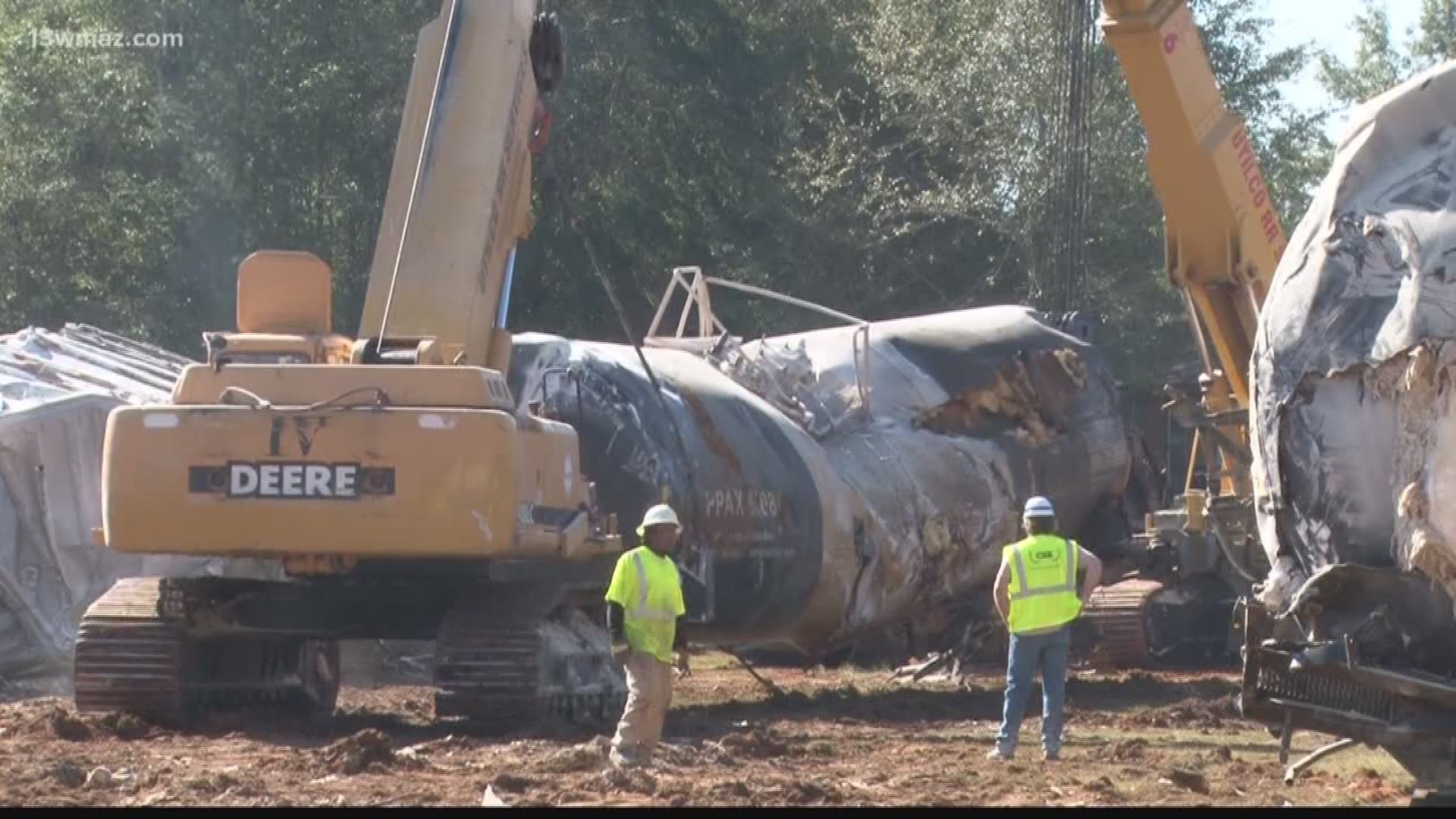Cleanup continued in Byromville Monday after a CSX train derailed over a bridge on Highway 90 on Saturday.
The accident sent around 30 train cars crashing to the ground and forced neighbors to evacuate. The train was hauling several propane tanks, and officials say a leak could've caused explosions.
Saturday afternoon, CSX sent in a Hazmat team to check the air for chemicals -- and didn't find any. People are allowed back in their homes now, but that part of Highway 90 is still blocked as cleanup continues.
No one was injured when that train derailed, but 13WMAZ took a closer look at how emergency responders train and prepare for potentially hazardous situations like this one.
At Fire Station 10 in Macon-Bibb, firefighters sort through their hazmat gear.
"We have airbags in the event that a train turns over on something," says Training Chief Reco Stephens. "We have equipment that can help us identify the type of material and air monitoring equipment that can help us test the air to see if it's safe for us."
Stephens says all 175 Macon-Bibb firefighters on staff are qualified to respond to chemical spills.
"We require all firefighters to have 24 hours of hazardous material training yearly," says Stephens.
In case of a large accident, like the recent train derailment in Byromville, first responders would be "on scene," but "behind the scenes," there's another group working to help clean up.
"Emergency management would become that coordinating nexus for leading that response for the county," says Macon-Bibb EMA Director Spencer Hawkins.
Hawkins says his department would be busy coordinating not only with firefighters, police officers, and hazmat teams, but also with local hospitals and the National Weather Service.
If a chemical spill or accident calls for an evacuation or quarantine zone, new technology allows Hawkins to draw an outline around the effected area and send an alert to Macon-Bibb residents.
Chief Stephens says an app developed by railroad companies helps his guys, too.
"It kind of helps us identify the types of material that's carried on those cars," says Stephens.
"We're always ready and we're always making sure that we are training together and coordinating so that in case something does happen we're ready and prepared," says Hawkins.
Chief Stephens says the fire department trains directly with railroad companies every two years on how to respond to train accidents, but they train "constantly" within their own department on how to deal with hazardous situations.

